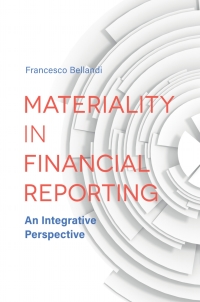Question
Think about Millmann. Why would he essentially delegate the audit partner responsibilities to an audit manager who also did not have experience auditing these kinds
Think about Millmann. Why would he essentially delegate the audit partner responsibilities to an audit manager who also did not have experience auditing these kinds of funds?
Implications of Not Adhering to Professional Auditing Standards: The Case of Daniel Millmann, Lisa Hanmer, and RSM
This feature illustrates examples of not adhering to professional auditing standards.
Neglecting to adhere to the professional auditing standards heightens the risk that the auditor will provide an unqualified audit opinion on financial statements that are materially misstated. This lesson is highlighted in an audit performed by RSM for the audit of Madison Capital Energy Income Fund I (hereafter, Fund I), which audit partner Daniel Millmann (hereafter, Millmann) led.
In the SECs summary of the weaknesses that they uncovered while evaluating the quality of the audit, the SEC claims that Millmann repeatedly violated professional standards, including failing to conduct the audit in conformity with GAAS. He did not adequately plan and assess the risk of the Fund I audit before beginning fieldwork. He had not previously had experience working on an oil and gas fund audit, and he was not approved to work on the audit before he began doing so. As a result, the Fund I financial statements did not separately report the fair value of the investment in each oil and gas royalty interest held by Fund I, as required by GAAP.
Lisa Hanmer (Hanmer), the RSM engagement manager for the Fund I audit, knew that the auditing procedures were inadequate with respect to the fair value of the investment in the royalty interests, and she concealed this fact from RSM personnel, including Millmann. Like Millmann, Hanmer also had no experience in auditing a company such as Fund I. Millmann also did not complete the report release workpaper, which requires that he satisfy himself that all review comments on the audit are adequately resolved before releasing the audit report.
The SEC was dissatisfied with the fact that Millmann essentially delegated most of his responsibilities to Hanmer. In addition to criticizing Millmann and Hanmer individually, the SEC also levelled a variety of criticisms against RSM as a firm, including with respect to client acceptance decisions, risk assessment, training, and competence of employees.
While Millmanns actions were passively unprofessional and related more to a dereliction of duties in allowing Hanmer to conduct most of the audit on her own (she was in the process of going up for partner at the time, so he probably felt that she was capable), Hanmers actions were actively unethical and in violation of professional standards.
For example, the concurring review partner on the engagement detected the GAAP violation and asked her to remedy it. Instead, she acquiesced to client pressure to release the Fund I report. She disregarded her concurring partners request, sent the final audit report to the client, and then provided the concurring partner with a different schedule of investments that purported to incorporate the concurring partners comment, but in fact included fictitious fair values for individual royalty interests.
For further details, see Securities and Exchange Commission Accounting and Auditing Enforcement Release Nos. 3870 and 3871 (May 23, 2017).
Step by Step Solution
There are 3 Steps involved in it
Step: 1

Get Instant Access to Expert-Tailored Solutions
See step-by-step solutions with expert insights and AI powered tools for academic success
Step: 2

Step: 3

Ace Your Homework with AI
Get the answers you need in no time with our AI-driven, step-by-step assistance
Get Started


